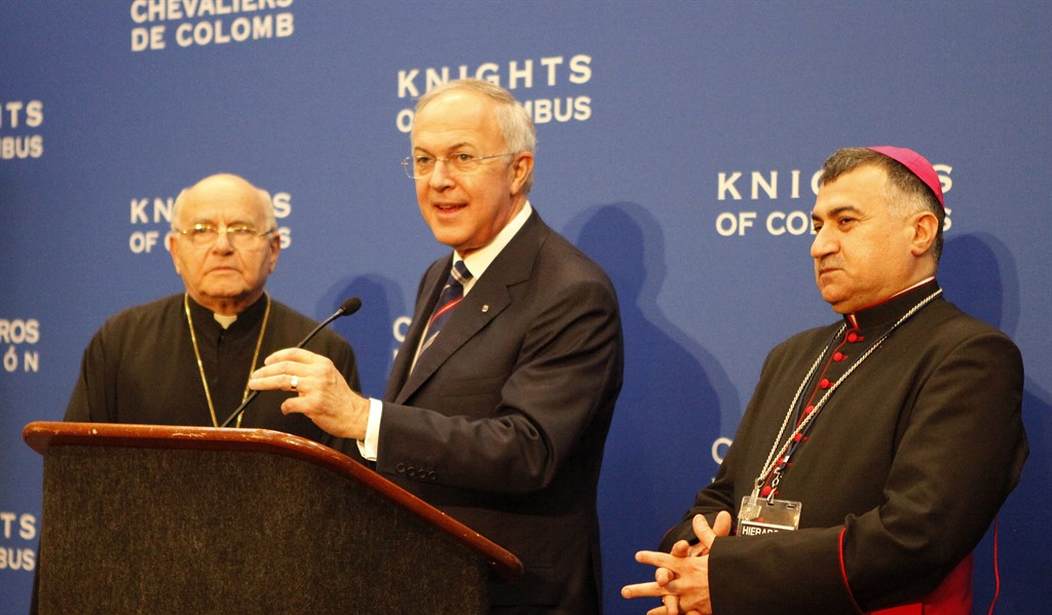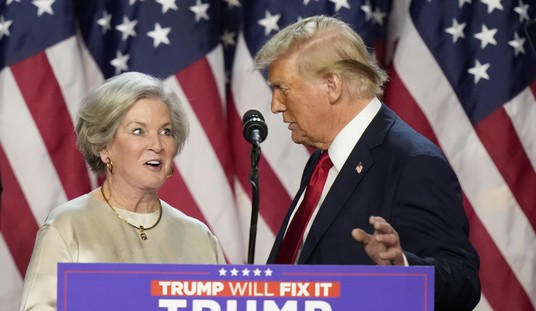In 1918, a popular song with America’s World War I troops had these lyrics:
“No matter their color, their race or creed, for every Yankee’s welfare, the K of C takes heed.”
You read that right. Five decades before the Civil Rights movement, the organization mentioned in the song was the only charitable organization in World War I to offer integrated facilities to troops – something it did decades before the military itself was integrated.
And when the Navy and Marine Corps themselves integrated in the late 1940s, it was a project led and championed by a former CEO of this organization.
The “K of C” stood for Knights of Columbus, and what they did a century ago on the issue of race was decades ahead of its time.
I was quite taken with these stories, detailed in a new book The Knights of Columbus: An Illustrated History being released next month. Anyone interested in the intersection of faith, freedom and racial equality in the United States should read this book. It tells the incredible and multi-faceted story of an organization that has helped shape history through action and advocacy for those in financial need and those suffering discrimination or persecution on account of race, creed, or color.
As we end Black History month, it’s worth remembering that the Knights’ efforts.
These efforts didn’t begin and end with World War I, they started in the 1890s, when the Knights were already admitting African American members. The first known African American member of the Knights joined in 1895 and held a leadership position in his local council. At the same time, the Knights were not shy about overtly advocating for equal citizenship regardless of race, color or creed.
And after the “Great War,” the K of C work continued as the group provided job training and education for veterans – both black and white.
In the 1920s, the Knights stepped up again for African Americans – in a big way. Seeing that many groups were being overlooked by American history books, the Knights set out to change that and make sure the stories of Catholics, African Americans and Jews were told.
Specifically, the Knights hired W.E.B. DuBois to write The Gift of Black Folk, which explored the contributions of African Americans to United States history. The book is a classic, and it was published by the Knights of Columbus during a time when many religious institutions were still segregated.
Underlying the Knights efforts was a simple fact. The Knights believed that America’s promise of equal rights should apply to everyone – black or white, Catholic or non-Catholic.
This meant the Knights would lead the charge against the Ku Klux Klan when the Klan tried to outlaw Catholic education in the state of Oregon. Funding the challenge taken to the Supreme Court, the Knights-funded plaintiff’s (the Society of Sisters) prevailed, and Catholic education was persevered.
When governments persecuted Christians in the Middle East in the early 1920s, and Catholics in Mexico in the later 1920s, the Knights were there to assist those persecuted and advocate for them
When the Nazis began persecuting Jews – and others – the Knights spoke up again. They spoke up also against human rights abuses by the Soviet bloc before and during the Cold War, and of course, their work for persecuted Christians in the Middle East today is legendary.
Where faith and freedom have been threatened, the Knights have been there to help. Ahead of its time on racial and religious freedom issues – not to mention a global force for charity – the Knights of Columbus is an organization which Americans who value our country’s freedoms should get to know, and The Knights of Columbus: An Illustrated History is the perfect introduction.
Ken Blackwell is an Advisor to the Family Research Council and Donald J. Trump for President, Inc.

























Join the conversation as a VIP Member